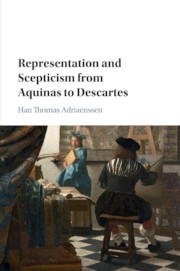8 - Criteriological Problems
from PART III - REPRESENTATIONS AND SCEPTICISM
Published online by Cambridge University Press: 13 July 2017
Summary
From Cicero's Academica, we learn that, according to the Academic thinker Antiochus of Ascalon, ‘the criterion of truth and falsity’ should be at the centre of philosophical inquiry:
The criterion of truth and the ethical end are, he argued, the two principal issues in philosophy: no one can be wise while they're ignorant of either.
This passage was written somewhere in the first century before Christ. But roughly two thousand years later, the American philosopher Roderick Chisholm would offer an astonishingly similar assessment of the importance of criteriological questions in philosophy:
‘The problem of the criterion’ seems to me to be one of the most important and one of the most difficult of all the problems of philosophy. I am tempted to say that one has not begun to philosophise until one has faced this problem.
As I will construe it here, the Problem of the Criterion centres around the following question: given that we depend on representations for our knowledge of external objects, how can we tell of any given representation that it is veridical?
Now this question may well pose a challenge to any account of cognition that postulates representations, and earlier chapters have suggested as much. But it has often been seen to raise a difficulty for indirect realism in particular. For as long as we never see external objects in themselves, its critics have argued, we will have no test or criterion to assess the quality of a representation.
Now as we have seen, this was a problem that early modern philosophers after Descartes would come back to time and again, and which motivated them to either modify, or in some cases to dismiss, the philosophy of ideas. But important as the problem was in the early modern reception of ideas, this chapter will claim that medieval philosophers on both sides of the debate regarding species showed no similar interest in it. This is not because they, to borrow Chisholm's words, had never begun to philosophize. Rather, their tepid interest in criteria sprang from a general optimism about our cognitive make-up that later philosophers in the seventeenth century would not share.
- Type
- Chapter
- Information
- Representation and Scepticism from Aquinas to Descartes , pp. 238 - 254Publisher: Cambridge University PressPrint publication year: 2017



